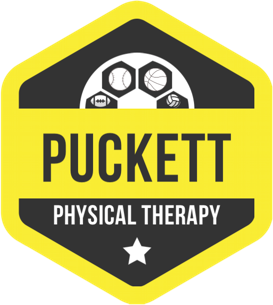Athletes push their bodies to the limit, and sometimes that means dealing with tight muscles,...
Hip Flexor Strains in Athletes: Treatment and Rehabilitation Approaches with Physical Therapy
Hip flexor strains are a common occurrence among athletes, particularly those engaged in sports requiring repetitive hip flexion movements or sudden changes in direction. These injuries can significantly impact athletic performance and sideline athletes if not properly addressed. In this blog post, we'll explore hip flexor strains, their causes, symptoms, and delve into the role of physical therapy in their treatment and rehabilitation.
Understanding Hip Flexor Strains
The hip flexors are a group of muscles located at the front of the hip joint responsible for flexing the hip and lifting the thigh toward the torso. Hip flexor strains occur when these muscles are stretched beyond their limits or subjected to sudden forceful movements, leading to microscopic tears in the muscle fibers. Athletes involved in sports such as soccer, football, basketball, and sprinting are particularly prone to hip flexor strains due to the repetitive nature of their movements.
Symptoms of Hip Flexor Strains
- Pain: Athletes may experience pain in the front of the hip or groin area, which can range from mild discomfort to severe pain, especially during activities that involve hip flexion or stretching of the muscles.
- Tenderness: Tenderness and soreness may be present upon palpation of the affected hip flexor muscles.
- Decreased Range of Motion: Reduced flexibility and limited range of motion in the hip joint may be observed, making movements such as walking, running, and kicking challenging.
- Weakness: Athletes may notice weakness or instability in the hip region, affecting their ability to generate power and perform explosive movements.
Treatment and Rehabilitation Approaches
- Rest and Ice: In the acute phase of injury, rest and ice application can help alleviate pain and reduce inflammation. Athletes should refrain from activities that aggravate symptoms and allow adequate time for tissue healing.
- Physical Therapy: Physical therapy plays a crucial role in the rehabilitation of hip flexor strains. A skilled physical therapist will conduct a comprehensive assessment to identify muscle imbalances, flexibility deficits, and movement dysfunctions contributing to the injury.
- Stretching and Strengthening Exercises: A tailored exercise program focusing on hip flexor stretching, strengthening, and stabilization is prescribed to improve muscle flexibility, strength, and endurance. Eccentric strengthening exercises, in particular, help promote tissue remodeling and prevent recurrent injuries.
- Manual Therapy Techniques: Hands-on techniques such as soft tissue mobilization, joint mobilization, and myofascial release may be utilized by physical therapists to address muscle tightness, improve tissue extensibility, and restore normal joint mechanics.
- Functional Training: Functional exercises that mimic sport-specific movements are incorporated into the rehabilitation program to enhance neuromuscular control, proprioception, and movement patterns essential for athletic performance.
- Gradual Return to Activity: Athletes progress through a structured rehabilitation protocol, gradually increasing the intensity and complexity of exercises while monitoring symptoms and functional outcomes. A gradual return-to-sport protocol is implemented to ensure a safe and successful return to athletic participation.
Conclusion
Hip flexor strains can pose significant challenges for athletes, impacting performance and quality of life. However, with prompt diagnosis, appropriate treatment, and comprehensive rehabilitation, athletes can overcome hip flexor injuries and return to sport stronger and more resilient than before.
Physical therapy plays a central role in the management of hip flexor strains, offering evidence-based interventions aimed at reducing pain, restoring function, and optimizing athletic performance. By partnering with a skilled physical therapist and adhering to a structured rehabilitation program, athletes can effectively address hip flexor strains and minimize the risk of recurrence, allowing them to pursue their athletic endeavors with confidence and vitality.
Overcoming Hip Flexor Strains: Partnering with Puckett Physical Therapy
At Puckett Physical Therapy, we understand the challenges that hip flexor strains present to athletes and individuals striving for peak performance. Led by Dr. Tim Puckett and our dedicated team, we are committed to providing comprehensive care and effective rehabilitation solutions to help you overcome hip flexor injuries and get back to doing what you love.
Whether you're an elite athlete aiming to excel on the field or an individual seeking relief from hip flexor pain, we're here to support you every step of the way. Contact us today at (210) 742-9423 to schedule a consultation with Dr. Tim Puckett and explore how our personalized approach to physical therapy can help you achieve your rehabilitation goals.
Your journey to overcoming hip flexor strains begins with Puckett Physical Therapy. Reach out to us through a direct call or visit our website to learn more about our services and take the first step towards a healthier, more active lifestyle.



